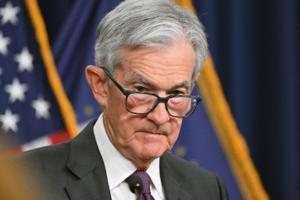Business
/ArcaMax

Auto review: 2025 Lexus RX has the prescription that consumers deserve
In 2025, the wide array of SUVs on the market is astounding. Every manufacturer has a compact, a mid-size and a large SUV in on the market. Sometimes it seems that SUVs are all you see on the roads anymore.
In Grasso’s Garage, our passion for luxury SUVs is no secret, but they must include good pricing, quality, comfort and storage, not to ...Read more

Krispy Kreme begins notifying over 160,000 people affected by data breach
CHARLOTTE, North Carolina — Krispy Kreme has begun notifying over 160,000 people affected by a data breach last fall.
The doughnut giant is notifying people affected by the breach in November after completing a data review and investigation, Krispy Kreme said in a statement Thursday to The Charlotte Observer.
“We are notifying affected ...Read more

Toyota can't dodge suit over Atlanta man's keyless entry death, judge says
Toyota can’t gut a lawsuit alleging it is responsible for the fatal carbon monoxide poisoning of an Atlanta man who unwittingly left his 2017 Tacoma idling in his garage, having walked inside his home with the car’s “smart key” fob, a federal judge in Atlanta ruled Wednesday.
U.S. District Judge Thomas Thrash Jr. said a jury should ...Read more

Belk hit with pair of lawsuits over data breach and notification failure
Two lawsuits were filed this week in federal court against Belk for a data breach and then for allegedly concealing the cyberattack.
In both cases, the plaintiffs are also seeking certification for class-action suits.
Belk failed to protect sensitive personal current and former employee and customer information, according to the lawsuits, and ...Read more

Zillow says it's fighting for buyers. Compass says it's fighting for sellers. What if neither is fighting for you?
As two real estate giants escalate a war over how homes should be listed for sale online, both sides say they’re acting in the interest of consumers.
Both sides also stand to make a lot of money if they win.
The issue intensified at the end of 2024, when Compass, the country’s largest brokerage by sales volume, began advising its sellers ...Read more

Waymo robotaxi stopped illegally, passenger opened door and severely injured cyclist, lawsuit claims
SAN FRANCISCO — A woman severely hurt in a bicycle crash with a Waymo robotaxi is suing the company, claiming one of its vehicles pulled over in a no-stopping zone next to a bike lane, and a passenger opened a door into her path — despite the car’s “Safe Exit” system touted by the Mountain View company as protection for passing ...Read more

Minnesota's Hormel sues Wisconsin's Johnsonville alleging stolen sausage secrets
A former Hormel Foods employee made off with top-secret sausage recipes and market intel before joining regional competitor Johnsonville, a new federal lawsuit alleges.
The Austin, Minnesota-based maker of breakfast sausage and more accused Johnsonville and two former Hormel employees of conspiring to “unlawfully obtain Hormel’s trade ...Read more

Farms, hotels and restaurants press Trump to exempt their businesses from immigration raids
LOS ANGELES — Farms, hotels and restaurants that rely on immigrant workers are urging the Trump administration to spare their vital industries from immigration raids.
The pressure comes as confusion swirls around whether President Donald Trump will exempt some businesses from efforts to arrest and deport immigrants living illegally in the ...Read more
Real estate Q&A: Should I pay $8,000 to repair damage from leak that didn't start in my condo?
Q: My condominium is charging me $8,000 to repair a leak they claim originated from my unit. They sent the assessment in a letter without even discussing it with me. The leak wasn’t from my unit because I also had slight water damage where water leaked through my ceiling, leaving a stain, which they would have known if they had contacted me. ...Read more

TikTok deal gets another extension from Trump
President Trump on Thursday signed an executive order giving TikTok a 90-day extension to work out a deal with the U.S. government that addresses security concerns over the app's ties to China.
Significant pressure has been placed on TikTok, known for its popular social video app, after a law was signed in 2024 that required TikTok's Chinese ...Read more

Cyberattack on grocery supplier reveals fragility of US food supply
Hackers infiltrated one grocery distributor, and within days, there were bare shelves at stores around the country and even some pharmacies unable to fill prescriptions.
That’s not the beginning of some thriller novel. It’s the real events that played out earlier this month as major wholesale distributor UNFI, dealt with a cyberattack. But ...Read more

Seattle's affordable housing industry is in crisis. City faces tough choices
Late last year, one of Seattle's most vaunted affordable housing providers put six buildings up for sale.
A few months later, another nonprofit listed four of its eight.
Then, another developer gave up its stake in all three of its affordable properties in Seattle.
While one-off sales happen from time to time, 13 buildings with more than 1,...Read more

Zillow says it's fighting for buyers. Compass says it's fighting for sellers. What if neither is fighting for you?
As two real estate giants escalate a war over how homes should be listed for sale online, both sides say they’re acting in the interest of consumers.
Both sides also stand to make a lot of money if they win.
The issue intensified at the end of 2024, when Compass, the country’s largest brokerage by sales volume, began advising its sellers ...Read more

Trump's immigration crackdown straining labor force for Minnesota ag, food operations
As agricultural and canning operations are ramping up for the summer, they are trying to figure out the possible repercussions of stepped-up immigration enforcement.
The workforce for these businesses has become tighter over the past few years, and many were worried that the threat of raids coupled with increased security at the Mexican border ...Read more

Eviction cases still soaring in the Bay Area five years after COVID-19
The eviction court of Alameda County, California, was crowded on a recent Wednesday. It usually is.
Tenants, family members, landlords and attorneys — about 100 people in all — waited long hours to appear before a judge at the Hayward Hall of Justice. Fifty-six people were slated to appear that day in a marathon of back-to-back sessions. ...Read more

Daily News and other outlets ask judge to reject OpenAI effort to keep deleting data
Lawyers for the Daily News, The New York Times and other news outlets suing ChatGPT’s parent company, OpenAI, have asked a Manhattan judge to reject an effort by the technology giant to continue deleting data that could prove it stole journalists’ work.
Manhattan Federal Magistrate Judge Ona Wang last month ordered OpenAI to preserve its ...Read more

Jonathan Levin: The Fed is just as confused as the rest of us
The most powerful institution in global finance is as completely and utterly confused as the rest of us.
At its policy decision Wednesday, the Federal Reserve’s rate-setting committee held rates at 4.25%-4.5%, but Chair Jerome Powell and his colleagues essentially acknowledged that they had no idea what would come next. They couldn’t ...Read more

NTSB warns about Boeing 737 Max engine issue that could lead to smoke in cabin
U.S. safety investigators called for urgent action to be taken in response to an engine issue on Boeing Co. 737 Max aircraft that can lead to smoke in the cockpit or cabin.
The National Transportation Safety Board’s recommendation comes after at least two incidents in which planes were filled with smoke after large birds struck their engines....Read more

Trump again pushes TikTok sale deadline with 90-day reprieve
President Donald Trump plans to extend for a third time the deadline for Chinese company ByteDance Ltd. to divest the American operations of TikTok, allowing the social media app to keep running in the U.S. while negotiations proceed.
“We’re going to extend it,” Trump told reporters at the White House on Wednesday. “We’re going to ...Read more

Boeing says new 777X family is on track after years of setbacks
LE BOURGET, France — After years of setbacks, Boeing says the newest members of its 777X family are on track to enter the market this decade.
Justin Hale, Boeing’s customer lead for those new family members, laid out the anticipated timeline at the Paris Air Show, standing inside a mock cabin of the new widebody plane with reporters ...Read more
Popular Stories
- Seattle's affordable housing industry is in crisis. City faces tough choices
- Minnesota's Hormel sues Wisconsin's Johnsonville alleging stolen sausage secrets
- Zillow says it's fighting for buyers. Compass says it's fighting for sellers. What if neither is fighting for you?
- Trump's immigration crackdown straining labor force for Minnesota ag, food operations
- Daily News and other outlets ask judge to reject OpenAI effort to keep deleting data










